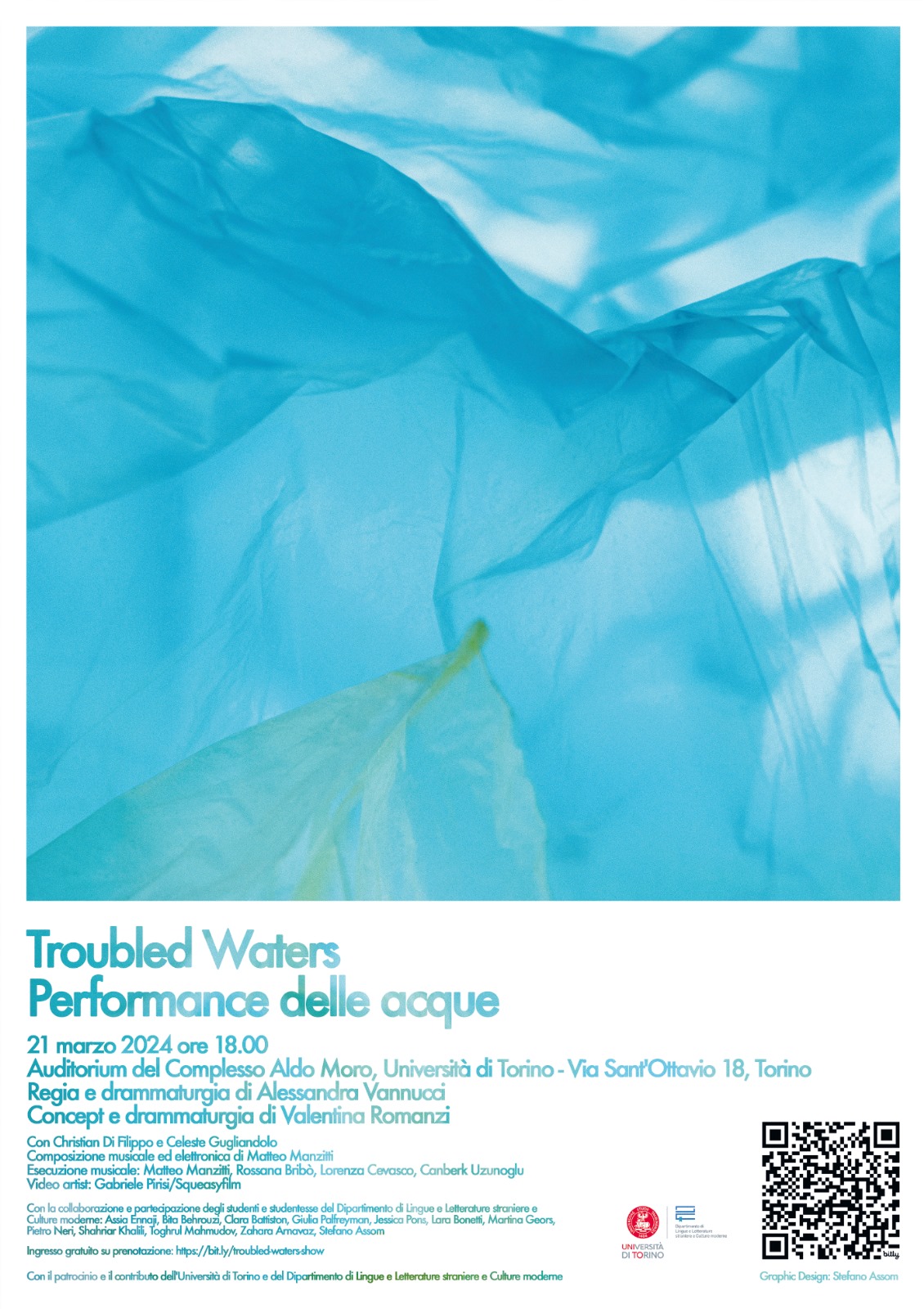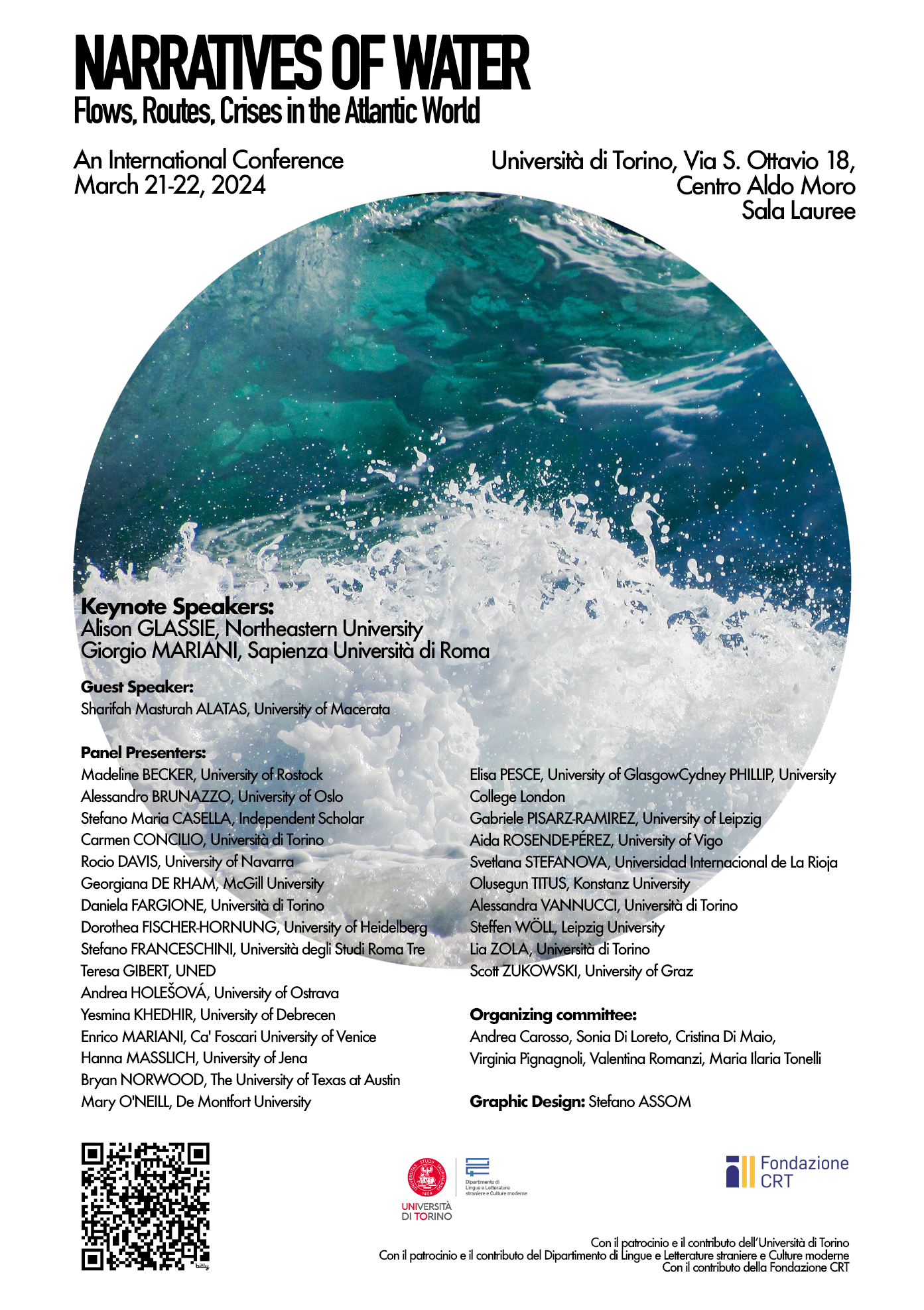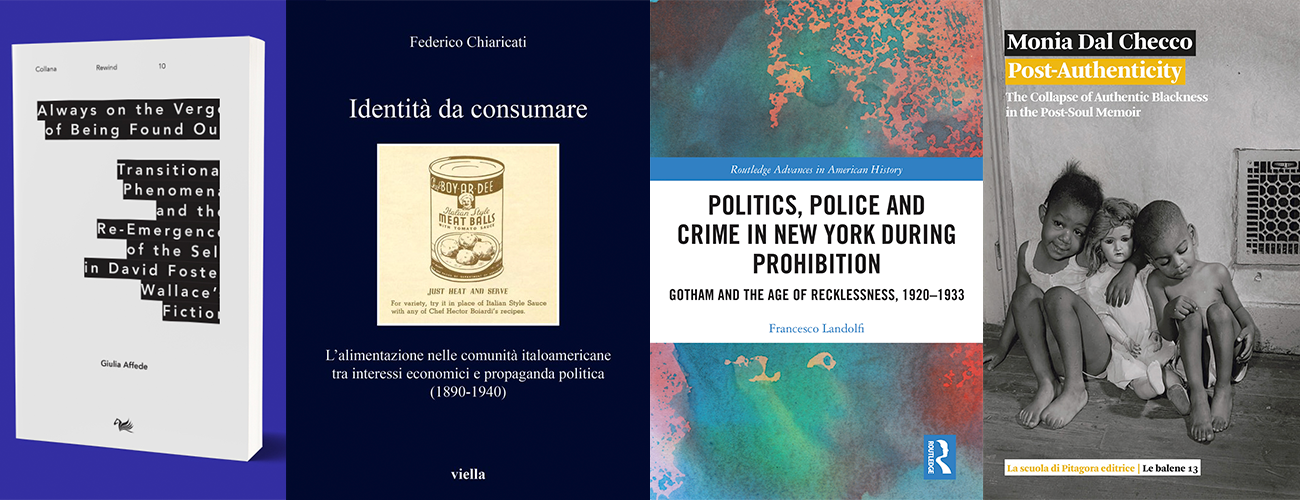- Narratives of Water: Flows, Routes, Crises in the Atlantic World, un convegno internazionale (21-22 marzo).
- Troubled Waters – Performance delle Acque, uno spettacolo teatrale (21 marzo, ore 18.00).
Si condivide la notizia di un bando di concorso relativo ad un contratto di Storia degli Stati Uniti presso l’Università degli Studi di Firenze. Il contratto rientra nell’American Studies Initiative sponsorizzata dall’Ambasciata degli Stati Uniti.
Si condivide la notizia di un bando di concorso relativo ad un contratto di Storia degli Stati Uniti presso il Dipartimento di Scienze Umanistiche (DISUM) dell’Università del Piemonte Orientale. Il corso è finanziato dal programma dell’ufficio culturale dell’Ambasciata, AISNA e Centro Studi Americani “American Studies Initiative”.
Guest Editors:
Elisa Pesce, University of Glasgow
Rachele Dini, Coventry University
We are seeking contributions for a special section on “Book Erased: Print Word Censorship and US National Identity” to be published in Issue #35 (September 2024) of RSAJournal: Rivista di Studi Americani, the official journal of the Italian Association for North American Studies (AISNA).
In publishing as well as in educational contexts, works of literature are conventionally classified based on a wide range of criteria such as genre, period of writing, intended readers, subject matter, and the identity markers associated with the author and/or main character(s). Long-standing paradigms of literary merit also ensure a widely shared consensus among readers and professionals in the literary field on the distinction between elite, popular, and mass literature, which until relatively recently has limited scholarly attention to highbrow literary genres. Regardless of classification method and of popular or critical success, however, all books are equally vulnerable to one measure of judgement: censorship.
From canonical masterpieces to the latest bestseller, the history of US literature is punctuated with books that have been banned from classrooms, libraries, and bookshops because they are considered harmful or inappropriate by a reactionary minority. The most recent PEN America Index of School Book Bans (July 1, 2021 – June 30, 2022) shows an escalation of book bans during the fall 2022 semester (+28% compared to the prior six months) that disproportionally targets works by and about Black people and queer people, particularly fiction and illustrated books for young adult readers.1 PEN America also estimates that “at least 40 percent of bans […] are connected to either proposed or enacted legislation, or to political pressure exerted by state officials or elected lawmakers to restrict the teaching or presence of certain books or concepts.”2 By exposing the most profound fears of the US hegemonic powers and the way these have evolved or persisted, unchanged, over time, banned books mirror, and therefore provide insights into, other politically motivated acts of censorship throughout US history. This special issue invites contributions that examine the ongoing nationwide “Ed Scare”3 in US public education in the context and as part of a wider, conservative political agenda aimed at maintaining the status quo by restricting and policing (among other things) the promotion and exercise of critical thinking, especially among young people.
Scholars from different areas of American literature, culture, and the arts are invited to submit their proposals. All disciplinary and interdisciplinary approaches are welcome, and topics may include, but are not limited to:
- Book bans and the axes of oppression, with particular reference to the current expanded censorship on themes centred on race, history, sexual orientation and gender
- The history of censorship (within and outside literature) in the US, with particular focus on its contemporary forms and dynamics
- The impact of book bans on teachers, students, writers, and/or the wider US population
- ‘Dangerous’ ideas and the upholding of US national core values, a.k.a. the impact of book bans on the nation’s fundamental freedoms and constitutional rights
- The correlation between book bans in public education and the attack on the humanities in academia
- The evolution and/or present state of standards of morality in the US
- Book bans and the (re)construction of US history
- A comparative analysis of censorship of the printed word in the US and in other parts of the world (for example, librarians in the UK are facing increasing requests to censor or remove books from the shelves, too)
- The relationship, or difference, between the motivations underlying book bans and the recent controversies for the removal of potentially offensive language from classics, such as the works of Agatha Christie, Roald Dahl, Ian Fleming, and Mark Twain
SUBMISSION PROCESS
Abstracts of about 300 words and a 150-word bio note should be sent to Elisa Pesce (elisa.pesce87@gmail.com) and Rachele Dini (racheledini@yahoo.com) by December 15, 2023.
The Guest editors will send an acceptance notification by December 22, 2023.
Full essays must be submitted by February 28, 2024 through our online submission platform.
1 PEN America. 2023. “Banned in the USA: State Laws Supercharge Book Suppression in Schools.” Accessed October 13, 2023. https://pen.org/report/banned-
2 PEN America. 2023. “Banned in the USA: The Growing Movement to Censor Books in Schools.” Accessed October 13, 2023. https://pen.org/report/banned-
3 Jonathan Friedman. 2022. “Goodbye Red Scare, Hello Ed Scare.” February 23, 2022. Accessed October 13, 2023. https://www.insidehighered.
Il Direttivo AISNA e’ lieto di comunicare l’avvenuta pubblicazione in forma di monografia delle quattro tesi di dottorato finanziate da parte dell’associazione nel 2021. Un caloroso ringraziamento alla Ambasciata americana, che ha generosamente finanziato le borse, e tante congratulazioni ad autori e autrici dei libri.
Giulia Affede, Always on the Verge of Being Found Out: Transitional Phenomena and the Re-Emergence of the Silf in David Foster Wallace’s Fiction (Aras Edizioni, 2022)
Sala “Arduino Agnelli”, Androna Campo Marzio 10
Dipartimento di Studi Umanistici dell’Università degli Studi di Trieste


